

Discovering Antarctica
Interactive teaching and learning resources on Antarctica from RGS-IBG in partnership with BAS and supported by UK FCO.

For teachers
- Wilderness challenge
- Being there
- The sound of silence
- Antarctica the movie
- Be a media critic
- Sizing up Antarctica
- The world turned upside down?
- Introduction to Antarctica’s Ice Sheets
- Going back in time
- Antarctica: The frozen continent
- Seasonal change
- The climate today
- The climate of the past
- The climate of the future
- Rising seas
- Making waves
- So you think you know about glaciers?
- What are glaciers?
- Glacial features
- Exploring ice
- Pine Island Glacier
- Key physical features
- Tectonic history: into the deep freeze
- Antarctica’s geology
- Ice sheets and glaciation
- The coast and adjacent ocean
- Key factors behind Antarctica’s climate
- Regional climate variation and weather
- Climate change: past and future
- The ozone hole
- Who’s looking at you
- Food from the freezer
- A time to Krill: a murder mystery
- A view to a Krill
- Biogeography of Antarctica
- The terrestrial environment
- The marine environment
- Ecosystem change and exploration
- A letter never sent
- The race to the pole
- The Rime of the Ancient Mariner
- Explorer’s diaries
- Packing your bag
- What (not) to wear
- Keeping healthy
- Generation next
- The job of a lifetime!
- Spot the difference
- Polar extremes
- The importance of Polar science
- Your polar proposal – become a scientist
- Decision time
- Guess the gadget
- Prepare to travel south
- Collect data about the ocean
- Collect atmospheric data
- Collect data about the land
- Using your data
- Bases for understanding
- Developing understanding
- Contemporary understanding
- Using the past to research the present
- Conserving the past
- Understanding the past and the present
- Mapping wind speed and direction in Antarctica
- Working in 3D using digital elevation models
- Ice shelf retreat on the Antarctic Peninsula
- Why Antarctica?
- A trip of a lifetime
- Avoiding footprints
- The future of tourism
- Acting responsibly
- Visit Antarctica
- Impacts and Management
- Environmentally friendly tourism
- A treasure trove of resources
- Farming Antarctic waters
- Putting you under pressure
- Fishing and biotechnology
- Under pressure: Land
- Overfishing
- Future of Antarctica
- Mineral resources
- Which view of the future? You decide!
- Reporting on the future
- Evidence of Change
- Impacts of climate change
- All agreed?
- The Antarctic Treaty system
- Making claims
- Working together
- Antarctic Treaty
- Conservation
- Science in Antarctica
Welcome to teachers notes for Discovering Antarctica, an education resource for schools, developed by the Royal Geographical Society with IBG, in partnership with the British Antarctic Survey and the UK Foreign and Commonwealth Office.
This is not a ‘scheme of work’, but a resource to dip into depending on your curriculum needs and priorities. You can download links to the National Curriculum for England and exam specifications below.
Curriculum links
- Links to the Geography National Curriculum and to the GCSE and A Level specifications for geography
- View the National Curriculum for Geography (KS3) 2014
- View the National Curriculum for Science (KS3) 2014
About the teachers’ pages
Links to the teachers’ notes individual sections can be found in the dark blue side tab on the right of your screen.
Each of the sections is divided into:
- ‘Icebreaker’ Learning activities to introduce the topic
- ‘Go with the floe’ Main learning activities
- ‘Meltdown’ Follow-up learning activities to extend the topic or to review and reinforce the main activities
The learning activities are devised for individual, pair or groupwork. Many are in interactive multimedia format for use either on an Interactive Whiteboard or for students to complete individually.
Wherever possible there are text-based alternatives , usually in Microsoft Word. You can download these to use away from the computer and/or to adapt them to meet your students’ needs. Go to Accessibility for more technical help on using and adapting the site.
The opening page of each section includes:
- A ‘cool fact’ that relates to the topic
- A ‘cool clip ’ showing some unique video footage from Antarctica
- Downloads of featured information sheets (in PDF or Word), images, and audio & video clips that could be used independently
- A list of all the featured i nteractive multimedia activities
- Appropriate links to other sites
- An ‘Activity Timer’ to set a time limit for an activity on an Interactive Whiteboard
- A glossary of key words – these are also highlighted in the text to link directly with the glossary
Links to the teachers’ notes individual sections can be found in the dark blue side tab on the right of your screen.

Become a member and discover where geography can take you.

- Resources for ...
- Discovering An...
Discovering Antarctica
Discovering Antarctica is an education resource for schools, developed by the Royal Geographical Society with IBG, in partnership with the British Antarctic Survey and the UK Foreign and Commonwealth Office.
The sections covered in the resource include:
Introducing Antarctica
Imagining Antarctica
What, where, why?
Oceans, atmosphere and landscape
A changing climate
Ice, land and sea
Atmosphere, weather and climate
Ecosystems and foodwebs
Beneath the waves
Science and exploration
Journey South
Living in Antarctica today
Pole to Pole
Collect Antarctic data
Understanding Antarctica
Geographic Information Systems (GIS)
Destination Antarctica
Antarctica under pressure
Sustainability
What future for Antarctica?
Climate change
- Evidence of change
- Impacts of climate change
How is Antarctica governed?
The Antarctic Treaty
Geopolitics of Antarctica
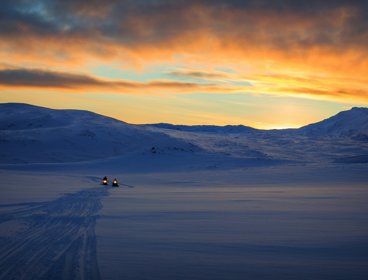
Discovering the Arctic
A guided tour across the top of the world
Back To Top

Antarctica Project - Outline and Lesson Plans
Age 11. originally 10 x 1 hour sessions for pupils approx. 11 years old, readily adaptable. geography, science, english, it, technology, performing arts.
Download this page: in Word | as a pdf
Session 1 - Introduction, research general facts about Antarctica - 1 to 2 hrs.
- Where is Antarctica?
- What are the weather conditions like?
- What is the landscape like?
Special Needs
- Experiment with their role as researcher
- Name one of Antarctica's neighbours
- Name three items which would be needed by visitors to Antarctica
- Provide description of Antarctica's weather conditions
- Provide some detail of their feelings as researcher.
- Explain how they might have expected the journey to be.
- Provide greater detail about their role as researcher by providing historical examples to highlight their ordeal
- Explain in detail their hypothetical journey and explore their feelings and hardships they may have endured.
Teacher introduces Antarctica as a narrative. The story goes something like this:
"Today you are all going to become explorer-scientists who have been given the mission of finding out about Antarctica. You will be leaving in one week and you need to use the time that you have left to discover as much about Antarctica as possible. If you don't have the right information, you might come across many dangers and you might even risk your lives and the lives of the others.
Your first job is to find out where Antarctica is, and what it's like there. You then need to decide what you should take with you and say why you need those things.
You will be going on this expedition with four other people and each of you is allowed to take four things, apart from your clothes. In your groups you will discuss what things you need.
When you finally arrive, you must write a short journal entry to describe the situation. Remember, you don't have much time to write, so only write the important things. Good luck!"
Session 2 - Design and build a shelter - 1 hr.
- What are the basic requirements for a shelter?
- How can a shelter be built?
- What problems would be faced by builders in Antarctica?
- Name the basic requirements and need for a shelter
- Name the basic processes involved in building a shelter.
- Explore the importance of safety in Antarctic conditions.
Gifted and Talented
- Explain in detail the processes of building a shelter and the importance of this in Antarctic conditions.
- In detail describe historical facts about Antarctica exploration including hardships and dangers faced by explorers.
"You are now the researchers and in Antarctica most bases are not on frozen soil, but on bedrock or on a (usually moving) ice-shelf - which present their own problems. You must quickly build a shelter. Firstly, you must find out that kind of materials were used to build shelters in the past, and what is being used now. You must discuss amongst yourselves whether you will use olden day materials or present-day materials and why".
Halfway through this activity teacher informs students that,
"A snowstorm has just hit and you must quickly decide what you should do to remain safe."
Short time later teacher informs class that,
"Luckily the storm only lasted for a short while and you can continue building your shelter."
NOTE: For this activity old sheets and long sticks can be collected and used to produce the "shelter". String can be used to secure the sheets to the sticks. This is a token activity designed to illustrate to the students the importance of shelter in Antarctica and the hardships experienced by explorers, especially the early explorers. Empty plastic milk or other bottles/containers could be made to provide a shelter for class display in the form of an igloo.
This could be taught in conjunction with the ideas here: - man as a tropical animal
Session 3 - Polar bear spotted? Research fauna and flora - 1 hr.
- What kinds of animals live in Antarctica?
- How are they able to survive there?
- What kind of plant life is there?
- Name three species of animals found in Antarctica
- Understand that polar bears are not found in Antarctica
- Be able to identify two groups of animals and identify two species within each group.
- Identify a variety of animal species found in Antarctica.
- Briefly describe specific features relating to each animal e.g. feeding habits, habitat, breeding.
"You are presently living in the hut. You hear noises outside and using a spotlight shone through the window you spot what you think is a huge polar bear. What are you going to do? You must research the fauna and flora of Antarctica so that you can find out what kind of animal it might be."
Researchers realise that there are no polar bears in Antarctica and discover that it's just a lost penguin.
Session 4 - Research occupations, role-play report to Base Commander - 1 hr.
- What kinds of occupations are needed in Antarctica?
- Why isn't there a wider range of occupations?
- Why is safety important in Antarctica?
- Name one of the jobs on an Antarctic base.
- Name one activity people do for leisure.
- Brainstorm reasons for safety rules.
- Name up to three of the different jobs on Antarctic base and briefly describe each of these jobs
- Name some of the leisure activities
- Explain problems which may arise from neglecting safety rules.
- Describe the various jobs and provide detail about each job.
- Describe a variety of leisure activities on Antarctica
- Describe a variety of safety procedures
"The Base Commander has requested that all personnel report to the main dining area for a full report of their activities for the week. Each person is to be present at 16:30 sharp. No excuses will be taken from late-comers. In addition, the meteorology department is to have a report regarding the possible blizzard heading our way.
The Base Commander will also discuss safety issues because some personnel are taking risks.
The group of people who returned late back to base after their visit to a local penguin colony triggered an alert and the assembly of a rescue party that was about to set out when they were seen. This caused considerable worry and disruption for the base - those individuals have been spoken to."
Any off-base trips could get into trouble, even to relatively safe places and in good conditions.
The teacher places students in groups of 3 and each group must research a particular occupation on Antarctica, e.g. marine biologist or engineer. Students also report on safety issues on Antarctic bases.
Session 4a - Guest speaker if possible. Students ask questions - 1 hr.
- Brainstorm possible question to ask guest speaker
- List at least one question
- List at least three questions to ask guest speaker
- List a variety of question which require more involved answers
Sessions 5 & 6 - Ernest Shackleton and the Endurance Expedition - 2 hrs. total
- Who was Ernest Shackleton?
- What was the purpose of the Endurance Expedition?
- Why do people explore?
- Is it worth taking the risks to explore new places or do things no-one has managed before?
- Explain what Shackleton was trying to do and why it went wrong.
- Explain why the men stayed with the ship in the winter and why it was so difficult to get back home.
- Describe the key stages of the journey as winter, the ship being crushed, the journey to Elephant Island, the boat journey to South Georgia and then the rescue of the men from Elephant Island.
- Identify 3 problems that Shackleton and his crew had to deal with other than the loss of the ship.
- Describe two difficulties that Shackleton and his men would have had to face at each stage.
- Give an opinion on whether or not Shackleton and his men achieved anything, what it was and whether it was admirable or not.
- A simple description of the events.
- A narrative written from the perspective of one of the men of the expedition.
- There is a narrative written from the perspective of Mrs. Chippy, the ships cat which can be purchased and read in part or whole, USA UK
- Ernest Shackleton is considered one of the greats of Antarctic exploration, further research as to what he did could be carried out and compared to Amundsen, Mawson and Scott.
- A larger display could be made in the form of a wall mounted time-line as a collaborative exercise.
Session 7 - Watch movie "March of the Penguins" - 1 hr.
- Why would people make movies about Antarctica?
- Identify the main theme of the movie.
- Recount one event from the movie.
- Recount a up to four events from the movie in order.
- Elaborate on various aspects of the movie and provide an individual point of view regarding the movie
But guess what? The movie is about Antarctica! Oh well, there's nothing else to do so you decide to go ahead and watch the movies anyway. The Base Commander tells you that the movie has some important information about a job that you have to do the next day so you are asked to take notes during the movie!"
Students take down notes to share in a discussion after the movie.
Session 8 - Tourism and future development - 1 hr.
- How do environmental organisations look after Antarctica?
- Why is it important to preserve Antarctica?
- What things can we do to preserve Antarctica?
- Show basic understanding of human impact on Antarctica
- Briefly discuss main aspects of global measures taken to ensure preservation of Antarctica.
- Identify organisations created to ensure preservation of Antarctica.
- Identify one specific problem and describe briefly measures taken to combat this problem.
- In-depth study of various problems facing Antarctica and discuss at length organisations created to preserve Antarctica.
"A message has arrived from the government of our country. We are to begin to assess this area of Antarctica for its value in providing resources such as minerals to be mined, fish to be caught, and whether it is reasonable to try and drill for oil.
You are required to write a short report on those areas that you know about personally - the marine biologists and boatmen about how good the fishing is, the geologists about where the most promising rock types are etc. Then in the summer in 3 months time, there will be a representative who will come to see for themselves how valuable this section of Antarctica could be in supplying natural resources.
This currently goes against the Antarctic Treaty which was established to ensure that Antarctica does not become exploited, but this is not guaranteed to be in place for ever."
Students research environmental issues impacting on Antarctica and organisations which have been established to combat these issues. Students role-play report given to Base Commander and are required to answer a set of questions by their classmates.
Session 9 - Stuck in hut due to snowstorm. Students devise entertainment. Write journals of experiences - 1 hr.
- How can music or other entertainment be created in Antarctica?
- What kinds of songs would people living there sing?
- What other sorts of entertainments could be made if people aren't musical?
- Suggest topics for creating songs
- Identify key issues of living in Antarctica.
- Recognise some feelings related to living in isolation as part of a group.
- Create basic verses for the songs.
- Recognise and discuss feelings and issues of living in isolation and as part of a group.
- Actively participate in creating songs and performing them.
- Create elaborate verses for songs and participate actively in performing them.
- Discuss at length feelings associated with living in isolation in Antarctica.
"A snow storm has suddenly hit and you are forced to stay inside the hut for the entire day. You must create a percussion band with equipment that has been brought with you into the hut. These can only include basic cooking utensils. You must also compose a song which sums up your ordeal in the Antarctic. How are you feeling at the moment, what will you do as soon as the storm subsides? These are all questions which you can use to guide you when you create your song." Alternatively you can produce some other form of entertainment.
They must take their journal with them and describe their ordeal while they are in the hut.
Resources: various cooking utensils (pots, pans, spoons), anything that can be used to create simulated percussion music, the tents that were previously built or a designated space if this is not possible.
Session 10 - Presentations - time flexible, 2hrs?
- Use all previous key questions.
- This is an assessment task
- Create basic PowerPoint presentation of at least 3 slides presenting basic facts about Antarctica.
- Students will create PowerPoint presentation of at least 6 slides presenting more in-depth knowledge of Antarctica.
- Students will show brief knowledge of issues affecting Antarctica.
- Students will create a comprehensive and detailed PowerPoint presentation showing a deep understanding of Antarctica and its issues.
The students present their understandings of Antarctica through a PowerPoint presentation.
If a data projector is available, then they can be shown to the whole class for peer-marking.
The students will choose photos of Antarctica from a selection already supplied by the teacher. Teachers must be aware of copyright infringement laws when gathering their photos. Many are available from this website . Another good source is Flikr.com but attention must be paid to the copyright requirements, possibly requiring permission to be acquired from the owners of the photos.
- News for Kids
- Dominican Republic
- Netherlands
- New Zealand
- Papua New Guinea
- Philippines
- Puerto Rico
- Solomon Islands
- South Africa
- South Korea
- Switzerland
- United Arab Emirates
- United Kingdom
- United States of America
- 7 Continents
- Australia/Oceania
- North America
- South America
- Chinese New Year
- Elections 2024
- Olympics 2024
- European Union
- Trivia & Quizzes
- Solar System Quiz
- Travel Reviews
- Travel Health
- Travel Links
Competition 2024
- Winners 2023
- Winners 2022
- Winners 2021
- Winners 2020
- Winners 2019
- Request A Correction
antarctica Facts
Our Antarctica Facts for Kids shall provide lots of interesting and fun facts on the southernmost continent.
Antarctica is the least populated continent of our planet. The word 'Antarctica' comes from the Greek term 'antarktike' meaning 'the opposite to arctic' or 'opposite to north'.

Top 15 Antarctica Facts
1. According to size, Antarctica is the fifth largest continent of our planet. The continent is almost double the size of Australia!
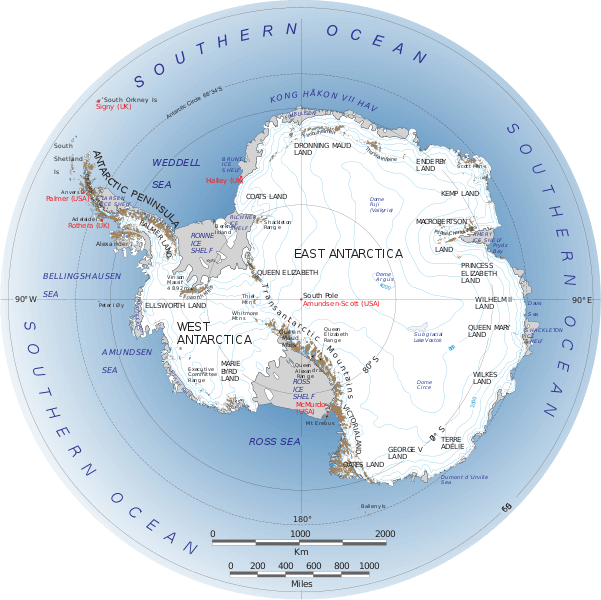
2. Antarctica is an ice covered continent surrounded by the Southern Ocean. Almost all of the continent's land is covered by a thick layer of ice. On average the ice is 1.9 km/6,200 ft deep. Read more on the Southern Ocean here. The inland ice-sheet has a thickness of up to 4 km/13,000 ft.
3. Antarctica is the driest continent of the seven continents. Ant arctica is an icy desert with very little rainfall throughout the year.

4. Antarctica is the windiest place on the earth where windspeed of more than 350 kilometres per hour/218 miles per hour have been measured.
4. Antarctica is the least populated continent. There are no residents living permanently here. Only around 1,000 people (in winter) and 10,000 people (in summer) live on the continent. These people are mainly based there for one year to live and work in the research stations. The research stations are scattered all around the continent.
5. The Antarctic Treaty which came into force in 1961 is now signed by 53 countries. The treaty regulates the international relations between all countries to support scientific operations on the ice. Article 1 of the Antarctic Treaty states that 'The area is to be used for peaceful purposes only'. According to the Antarctic Treaty, Antarctica refers to the land and ice shelves from 60 degrees south of the equator.

6. There are 18 countries who regularly send scientists and researchers to the various stations on the continent. The most and biggest stations are held by the USA, Russia, Chile, Argentina and Australia. The largest research station is McMurdo station, which is an research centre. There more than 1,000 scientists work on various research projects during summertime.
7. Highest continent: Antarctica has the highest average elevation of all continents. Most of the continent is higher than 3,000 m/9,900 ft. above sea level. The highest mountain on Antarctica is Mount Vinson at 4,900 metres/16,000 ft.

More Antarctica Facts
8. Antarctica Facts - Flora: The few areas where there is no or only little ice throughout the year are located in the most northern parts of the continent. There one will find also the typical Tundra vegetation . Typical Tundra plants are small scrubs, grasses and mosses.
9. Antarctica Facts - Fauna/Wildlife : There are not many species living on the Antarctic continent. Whales, and seals live in the Southern Ocean surrounding Antarctica. The Emperor penguins are the only penguin species breeding on Antarctica.

Emperor penguins are the tallest and heaviest of all penguin species. They grow to over 120 cm/48 inches in height and weigh up to 45 kg/100 lb. These penguins feed on krill, fish and squid. The penguin colonies on Antarctica usually contain thousands of penguins. On Antarctica there are about 5 million penguins!
10. Antarctica Climate - Coldest Place : Antarctica is the coldest continent of our planet. The coldest air temperature ever measured in Antarctica was -89.2°C /-128.6 °F at Vostok Station in 1983. Along the Antarctic coast, the average temperature is -10°C /14 °F. The coastline has the warmest climate of the continent.
11. The geographic South Pole is located more than 1,235 km/767 miles from the coast on a plateau 2,800 metres/9,100 ft. above sea level.

The Amundsen-Scott South Pole Station is located next to the geographic south pole, as you can see in the image above.
12. Antarctica Facts - Famous explorers :
- British explorer James Cook was the first to cross the Antarctic circle and to circumnavigate the Antarctic continent as early as 1773
- Norwegian explorer Roald Amundsen was the first to reach the South Pole in 1911
- British polar explorer Ernest Shackleton undertook three Antarctic explorations and was the first to cross South Georgia in Antarctica in 1916

13 . In 1985, scientists described a huge ozone hole which grew in the atmosphere over Antarctica. It had formed in less than ten years as ozone values had sank every Springtime in the Antarctic. Man-made chemicals were destroying the ozone layer. The thinning ozone layer was understood as a warning sign. The ozone hole shows how sensitive our planet is to our activities.
14. About 40,000 tourists from around the world visit Antarctica every year on polar cruises and exploration trips.

T ourist attractions in Antarctica are:
- Deception island, formerly a whaling station, is popular for its still active volcano and it's viewpoint at Neptune's Bellows.
- Port Lockroy on Wince Island, where there is a Antarctic heritage centre and museum.
- Drake Passage is a popular part of polar cruises although it is known for its rough seas. The water channel lies between South America and Antarctica.
- Tourists will also enjoy watching the Aurora australis , the Southern Lights in the Antarctic winter between March and September.
15. Antarctica Facts: Antarctica contains more than 90% of the world's ice and more than 90% of our planet's fresh water.
Useful Resources for Antarctica Facts:
- British Antarctic Survey: Last accessed 2 October 2017
- Introduction to Antarctica : Last accessed 2 October 2017
- National Geographic: World Atlas for Young Explorers. Washington: 2010
- Earth Condensed. The World Atlas by Millennium House. 2009
Read more about the other continents
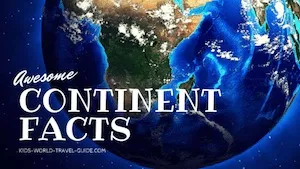
Image Credits on Antarctica facts page: Shutterstock.com and wikipedia commons
Return from Antarctica Facts to Kids-World-Travel-Guide Homepage
Competition 2024 is open!
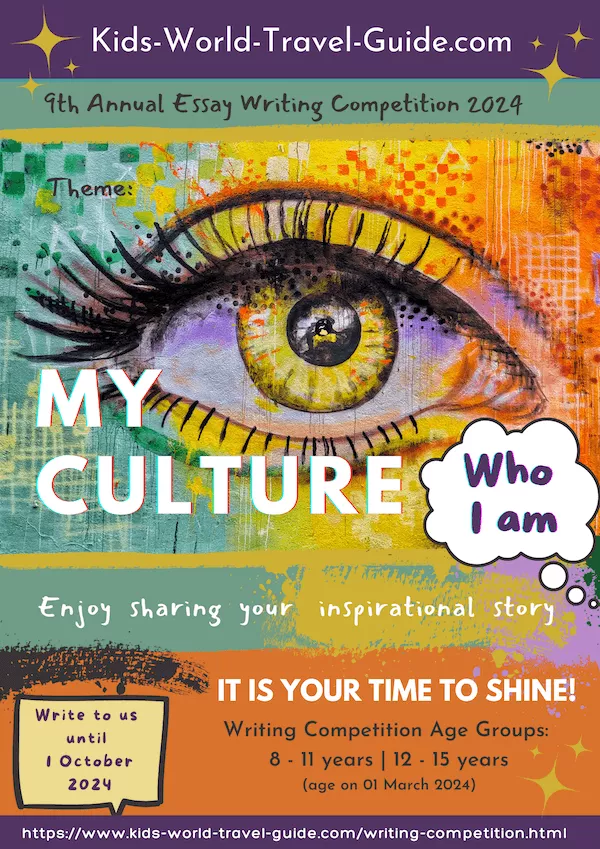
Events & Celebrations
Organisations, games & quizzes, travel tips, competition, recent articles.
Food in Germany | German Food for Kids | Germany | Germany Eats
Sep 19, 24 10:37 AM
Germany Facts | Facts for Kids | Geography | Travel | Attractions
Sep 19, 24 06:28 AM
Latvia Facts for Kids | Geography | Facts about Latvia | Baltics
Sep 17, 24 10:42 AM
Other Continents
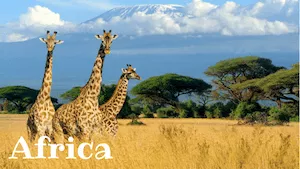
Southern Hemisphere Countries
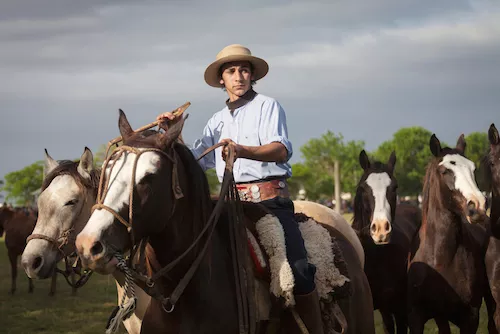
Did you like what you read?

Like us on Facebook
Kids World Travel Guide
Follow us on Twitter
Have you entered already.

Brilliantly
Content & links.
Verified by Sur.ly
©Kids-World-Travel-Guide.com 2010-2024 | Created by Regina Gräff and KidsWorldTravels
All rights reserved | Privacy Policy | Disclaimer
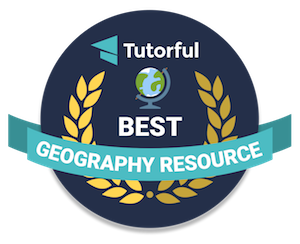
- International
- Education Jobs
- Schools directory
- Resources Education Jobs Schools directory News Search
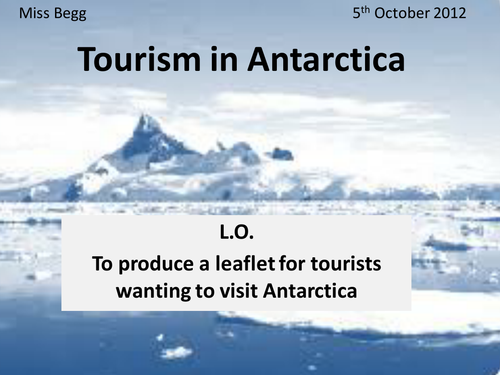
Antarctica Tourism Activity
Subject: Understanding the world
Age range: 11-14
Resource type: Worksheet/Activity
Last updated
29 August 2021
- Share through email
- Share through twitter
- Share through linkedin
- Share through facebook
- Share through pinterest

Students as a class brainstorm different aspects of tourism in Antarctica and then produce a leaflet.
Creative Commons "NoDerivatives"
Your rating is required to reflect your happiness.
It's good to leave some feedback.
Something went wrong, please try again later.
Good activity to encourage independent learning.
Empty reply does not make any sense for the end user
Report this resource to let us know if it violates our terms and conditions. Our customer service team will review your report and will be in touch.
Not quite what you were looking for? Search by keyword to find the right resource:
Resources you can trust
Extreme tourism - Antarctica
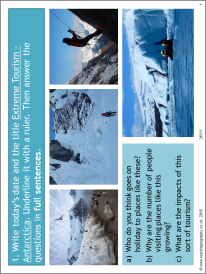
A resource which uses Antarctica as an example of extreme tourism. This lesson covers general themes about extreme tourism as well as an independent research activity on Antarctica. Students use different fact sheets to gather information so that they can complete a case study on tourism in Antarctica.
Also included are an eight mark exam-style question, an Antarctic bingo activity which could be used for revision and teaching notes to offer support and guidance.
All reviews
Have you used this resource?
Otilia Chigumete
Steve Bennett
Resources you might like

IMAGES
VIDEO
COMMENTS
A lesson looking at why people visit Antarctica and the impacts created by tourism. Tes classic free licence. Reviews. 4.5. Something went wrong, please try again later. amiskell. 6 years ago. report. 5. All ready to go and well differentiated. Thank you. Empty reply does not make any sense for the end user ...
Antarctica is the coldest continent - Russia's Vostok Station recorded the world's coldest temperature of -89°C in 1983. ... Landscape and Process KS2.doc. 48 KB. Landscape and Process KS3.doc. 69 KB. Explore Landscape and Process.doc. 114 KB. Map of Antarctica.doc. 63 KB. Plan your research.doc. 49 KB. Tourism in Antarctica.doc. 47 KB ...
Antarctica is a frozen, windswept continent, so hostile and remote that it has no permanent inhabitants. Scientists in Antarctica study the land and the atmosphere as well as clues buried beneath the ice. They have made many discoveries, including signs of future change that could affect us all. Discovering Antarctica, an award winning ...
Key learning points. Third smallest continent. Extremely cold, covered in ice- contains 90% of the world's ice. Doubles in size in winter when the seas freeze. No humans live in Antarctica permanently- temporary population of 5000. This content is made available by Oak National Academy Limited and its partners and licensed under Oak's terms ...
Physical geography. Most of Antarctica is covered in ice because of its cold climate. Antarctica has an average temperature of -30˚C but it can reach -60˚C in the coldest parts of the year. In ...
Welcome to teachers notes for Discovering Antarctica, an education resource for schools, developed by the Royal Geographical Society with IBG, in partnership with the British Antarctic Survey and the UK Foreign and Commonwealth Office. This is not a 'scheme of work', but a resource to dip into depending on your curriculum needs and priorities.
Discovering Antarctica is an education resource for schools, developed by the Royal Geographical Society with IBG, in partnership with the British Antarctic Survey and the UK Foreign and Commonwealth Office. The sections covered in the resource include: Introducing Antarctica. What, where, why? Oceans, atmosphere and landscape.
Explore the geography of Antarctica with your students, including the climate, extreme tourism and animal adaptations. Showing 14 results.
A helpful text to use alongside the teaching of Discussions. Support this teaching of this material with our 10 Interesting Facts About Antarctica. Twinkl. discussion text example tourism discussion writing antarctica travel and tourism ecotourism argumentative essay discussion text discussion persuasive writing balanced argument narrative ...
Discover the amazing facts about Antarctica, the coldest and driest continent on Earth, with Bitesize KS1 Geography.
Support this teaching of this material with our 10 Interesting Facts About Antarctica. Recently Viewed and Downloaded › Recently Viewed › Recently Downloaded . ... Should There Be Tourism in Antarctica? Discussion Writing Sample. 8 Reviews. Unlimited. ... KS2 Teaching Resources; KS3 & GCSE Teaching Resources; KS5 Teaching Resources;
Guest speaker coming (if can be arranged). Students ask questions. 5 & 6 - 2 hours. Ernest Shackleton and the Endurance Expedition. 7 - 1 hour. Watch movie "March of the Penguins" or other. 8 - 1 hour. Tourism and development. Students discuss and research environmental issues affecting Antarctica.
Should There Be Tourism in Antarctica? Discussion Writing Sample . 8 reviews . Last downloaded on. KS1 Animals That Live in Antarctica PowerPoint . 16 reviews . Last downloaded on. World Map of ... KS2 (Ages 7-11) NewsRoom Story of the Week: Harpreet's Journey to Antarctica. 1 review
Tourism in Antarctica. Tourism started in Antarctica by the sea in the 1960s. Air overflights started in the 1970s with sightseeing flights by airliners from Australia and New Zealand, and were resumed in the 1990s. The (summer) tour season lasts from November to March. Most of the estimated 14,762 visitors to Antarctica from 1999-2000 were ...
Support this teaching of this material with our 10 Interesting Facts About Antarctica. Recently Viewed and Downloaded › Recently Viewed › Recently Downloaded . ... Should There Be Tourism in Antarctica? Discussion Writing Sample. 8 reviews. Made by . teachers . Unlimited. ... KS2 Writing a Balanced Argument Lesson Pack.
10. Antarctica Climate - Coldest Place: Antarctica is the coldest continent of our planet. The coldest air temperature ever measured in Antarctica was -89.2°C /-128.6 °F at Vostok Station in 1983. Along the Antarctic coast, the average temperature is -10°C /14 °F. The coastline has the warmest climate of the continent. 11.
Students look at why tourists visit Antarctica, the grwoth rates of tourism here and the impacts tourism has on this cold environment. Students are encouraged to use key words and terms to extend and develop their written answers using the provided framework. A KS3-4 geography investigation into tourism in a cold environment, in this case ...
Tourism in Antarctica. Subject: History. Age range: 11-14. Resource type: Worksheet/Activity. File previews. ppt, 314 KB. The pupils look at whether tourism in Antarctica is possible and what effect it will have on the animals, the wilderness and the climate. Pupils use the computers to research their project.
Support this teaching of this material with our 10 Interesting Facts About Antarctica. Recently Viewed and Downloaded › Recently Viewed › Recently Downloaded . Close x. Home ... KS2 Tourism Resource Pack 'Zoos Are Cruel and All the Animals Should Be Released into the Wild.' Debate Topic Pack. LKS2 Writing: Balanced Argument/Debate Knowledge ...
Students as a class brainstorm different aspects of tourism in Antarctica and then produce a leaflet. Creative Commons "NoDerivatives" Review. 3 Something went wrong, please try again later. lrabbetts. 12 years ago. report. 3. Good activity to encourage independent learning. Empty reply does not make any sense for the end user ...
Victoria Gill visits the Antarctica Peninsula to discover the home of the penguins. Suitable for teaching science and geography at KS2, First Level and Second Level.
Should There Be Mining in Antarctica? Discussion Writing Sample ... KS2 Tourism Resource Pack. Persuasive Writing Examples Resource Pack. Impacts of Tourism Worksheet 'Zoos Are Cruel and All the Animals Should Be Released into the Wild.' Debate Topic Pack. Handwriting is Better Than Typing - Persuasive Reading Comprehension Activity.
Also included are an eight mark exam-style question, an Antarctic bingo activity which could be used for revision and teaching notes to offer support and guidance. A KS3-4 geography resource which uses Antarctica as an example of extreme tourism. This is an independent research activity to complete a case study on Antarctica by gathering ...